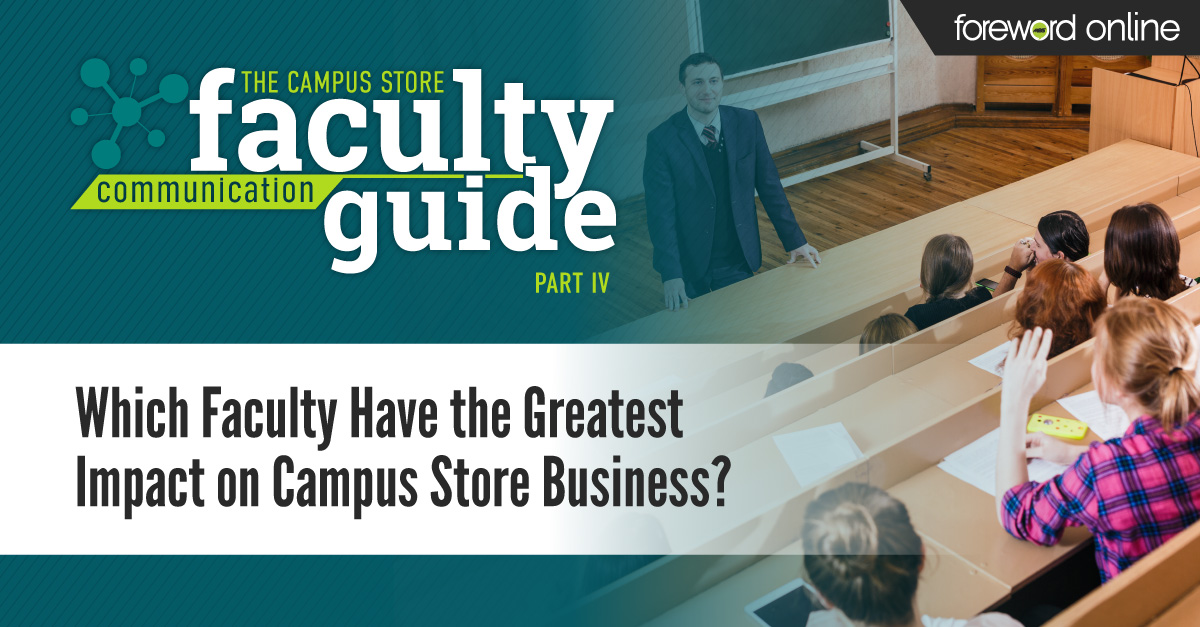For campus stores that sell textbooks, the adoption process is fundamental to business health. Several years ago, Salisbury University Bookstore made changes to its adoption process that have brought excellent results for us and made it easier for students to reduce the total cost of college. In the process, we’ve learned some things that other stores may find useful.
.jpg?width=1200&name=9-30-How-a-Strong-Adoptins-Process-Gives-Campus-Stores-the-Competitive-Edge%20(1).jpg)
 Guest Author: Lisa Gray
Guest Author: Lisa Gray
Lisa Gray is the Director of Salisbury University Bookstore, part of a state university in Salisbury, Maryland. She has worked in collegiate retail for nearly three decades.
Focusing on the fundamentals keeps campus stores relevant
Given the radical changes in our industry lately, it would be easy for a college store manager to sideline the importance of strengthening a textbook adoptions strategy. However, it’s much better to consider how adoptions influence your store’s capacity to evolve.
Since I started working in collegiate retail, so much has changed. First came the rise of rental, OER and digital. Then came increased focus from federal and state governments on textbook costs. As student debt has grown, the public, and students themselves, are questioning the value of course materials and higher education in new ways.
"That concern prompted us to reach out to our provost’s office. This is something I would recommend to almost any campus store. Find supporters in the administration. Work with an office that can lend additional authority to your request. This helped faculty see how the deadlines are part of a larger plan to support students and the university."
On top of that, campus stores are facing what’s probably the biggest challenge of all: the rise of online retail. Students expect different services from retailers than they did years ago. They have choices that didn’t exist before. That makes it imperative for campus stores to evolve.
Smooth adoptions make it possible for Salisbury University Bookstore to thrive amid the change. Our process helps us stay competitive and relevant. It enhances our contribution to the network of Salisbury University student services. It supports academic success and helps students reduce college costs.
How Salisbury University Store changed textbook adoptions
A few years ago, the Maryland legislature and the University System of Maryland Board of Regents passed regulations and policy that had a major impact on our textbook adoptions. We supported the goals. Both wanted to make sure that students would have information about course material costs before they registered for a course.
We were concerned about how the implementation of the law and policies would coexist and be received by faculty. The guidelines require us to post information on course material costs before registration begins. This meant we would have to request adoptions much earlier than we had in the past. We weren’t sure how faculty would adapt. Some already struggled to meet deadlines set for November and April. How would they respond to deadlines in early October and March?
That concern prompted us to reach out to our provost’s office. This is something I would recommend to almost any campus store. Find supporters in the administration. Work with an office that can lend additional authority to your request. This helped faculty see how the deadlines are part of a larger plan to support students and the university.The provost’s office worked with us to develop a letter to faculty that we still use.
The letter explains key issues that get faculty’s attention. First, it states clearly that the deadlines allow the university to meet federal and state government requirements as well as Board of Regents policy while lowering student costs. It offers simple instructions for using our electronic adoption system and it offers a brief introduction to inclusive access.
The impact of the change to textbook adoptions
We’ve found that when we send this letter very early in the term, then follow it with a handful of gentle reminders, the impact is profound. We don’t need to clutter their inboxes with repeated mail. The single letter with a few timely follow-ups does the trick.
Our on-time adoption rate now exceeds 80 percent. It’s higher than it was years ago when our deadlines were later in the term.
As a result, our students are better informed about the cost of course materials before they register for classes. This means they can budget in advance and establish a more accurate understanding of what the total cost of college will be.
Students can make more informed choices. They can include costs in their decision about a major, for instance. If they don’t think they can afford the course materials, they can choose to take a different class. They don’t feel like they’re stuck in a class where there’s a barrier to success because all the other students can afford the textbook, but they can’t.
Best of all, the early deadlines allow us to obtain more low-priced inventory. We can source more, wantlist longer and secure more rentals. Our philosophy is that, if we can secure more course materials — whether new, used, rental, eBooks or inclusive access — at the most affordable price, then we we can ensure more students come to us for course materials. Rentals are a popular choice for our students.
The early adoption deadlines allow us to offer students the most competitive price on over 90 percent of our course materials. In just the last year, our store has saved students $1,030,094. But we simply wouldn’t be able to obtain the lowest-priced materials if we didn’t know what we’ll need so early in the term.
If your store is concerned about competition, consider this: Not one of our competitors can offer students the kind of service that comes from an excellent adoption process. Our approach took time to develop, but none of that time was wasted. In fact, it streamlines our workload and lets us devote more time to providing students with the kind of retail experience they’ve come to expect.




